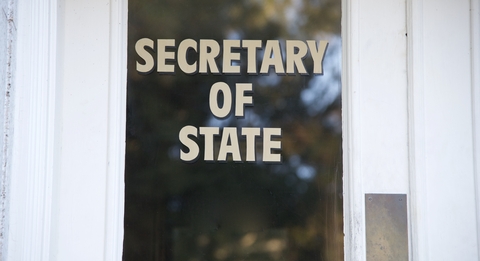Top post: Conduct a background check on yourself – It’s worth it
This post was originally published in May 2018.
Have you ever run a background check on yourself? I’m not talking about just googling your name. I’m talking about checking court and other public records, news, and even social media, and taking a deeper dive into your digital footprint to see what others might find out about you.
At a recent social event, I met a hedge fund manager who told me that his firm regularly runs proactive background investigations on all employees making decisions about investments or handling client funds – anyone within the firm who might be checked by others. In addition, since this fund manager has a very common name, he checks on the other people in his industry with the same name so he can warn potential investors that he’s not that other guy. I also know several cannabis entrepreneurs who, before applying for their licenses or entering into a deal, have done their own background checks, so they know what the regulatory agency or investor will find.
They do this because, in a due diligence investigation, the way you act or react regarding any less-than-stellar online information says more about you than any factoid found on the internet. It’s a smart move, because you’re much better off telling the truth, admitting to any past issues, and explaining all the ways you’ve fixed or will be fixing these mistakes.
It’s also a good idea because there are lots of errors and cases of mistaken identity in public records and media, which are easier to fix sooner, rather than later. Take, for example, the case of Pete Kisler, who resorted to spending a lot of money and creating a company that offers online reputation management tools – for the sole purpose of “burying the other Pete Kisler in search results.”
So, when it’s important to know what others might find out about you, how do you run a proactive background check? Here’s one approach to checking out your digital footprint:
Become a savvy searcher – Familiarize yourself with Google advanced search features to learn how to expand and limit your results. Pair your name with former and current employers or universities to uncover any directory listings, bios, or news stories. Then try another search engine, including Bing, DuckDuckGo, or another Google alternative, because they may have different results.
Watch what you pay for – During your searches, you may come across ads for reports that are cheap, fast, and “complete.” But these types of instant reports aren’t so complete, and many merely scrape web data, with no human interaction for verifying or analyzing results.
Check social media – You might find some profiles or posts through Google, but then go directly to the social sites, including LinkedIn, Twitter, Facebook, and any other network. Another option is to try a social search engine like Social Searcher. Make sure your posts don’t get you in trouble with investors.
Search court records – Online definitely isn’t the same as searching at the courthouse, but sometimes “good enough” has to be good enough. Be sure to look for state and local criminal and civil filings, and don’t forget Pacer for U.S. courts.
Dig into other public records – Foreclosures, judgments, and liens are part of the public record. You can find links to sources for these records and more through a directory such as BRBpub.com.
Monitor regulatory records – If you’re registered with any agencies such as FINRA or NFA, run a search in their databases. I’ve seen clients invest in companies or people with several disciplinary actions on their records, mainly because they were forthcoming about the charges and outcomes.
Verify degrees and credentials – Verify that your school hasn’t held up your diploma due to a missed tuition payment or clerical error. If you claim any specialized credentials, confirm that you’ve maintained membership or other requirements and are currently authorized to use the designation.
Manage your expectations – You won’t find everything online, and a professional investigator may find information that you won’t. But after going through this approach, you’ll at least have an idea of what’s out there, and you can fix any issues or alert the other party.
Take a proactive approach to background investigations and your digital footprint – and avoid any delays in the deal-making process.




[…] you read this blog, you know that I frequently advise others to conduct a background investigation on themselves. It pays to know what others find when they search for your name on Google or another search […]